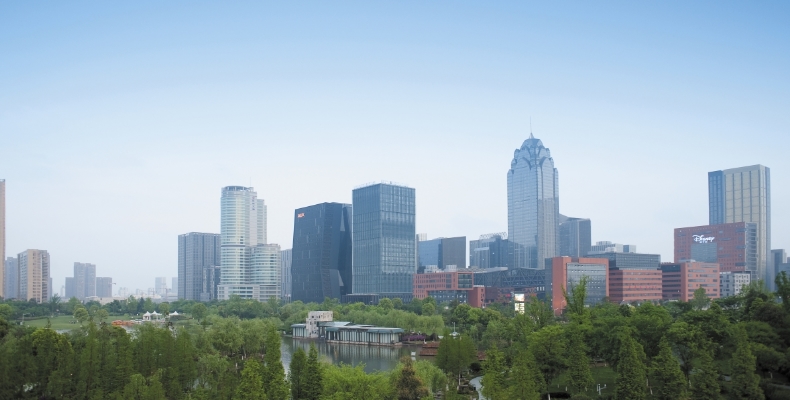Driving commercial and political engagement between Asia, the Middle East and Europe
Driving commercial and political engagement between Asia, the Middle East and Europe
Driving commercial and political engagement between Asia, the Middle East and Europe

Xi Jinping, the Chinese President, will pay his first visit to London in October 2015 since he became the country’s top leader at the end of 2012.
Xi has done many things that have stirred the bureaucratic system in China and have made a powerful impact on the global economic and political orders.
An aggressive but systematic anti-corruption campaign has led to more than 100 corrupt officials at or above the sub-ministerial level being investigated, and many times more being prosecuted at the lower levels.
The deepening of economic, social and political reforms in an all-round way has also shifted China from its past break-neck economic growth, high pollution, rampant corruption and extreme inequalities to a ‘medium-high’ growth path emphasising quality rather than quantity of development.
In 2014, China’s GDP growth rate slowed down to 7.5 per cent, which was the lowest for more than two decades. In the first half of 2015, it slowed even further to 7 per cent, and it is expected that this rate of growth can only be maintained for the entire year only if some minor stimuli are introduced, including cutting the bank reserve-deposit ratios, interest rates and the depreciation of RMB by at least 5 per cent.
There is no doubt that the Chinese economy has been facing many unprecedented challenges and constraints since 2012. Three main factors are responsible for the slowdown of economic expansion. First, the world financial crisis has slowly started to restrain China’s ability to expand its exports and attract foreign capital. Second, China’s massive stimulus package implemented during the world financial crisis has produced assets bubbles, industrial overcapacity and severe environmental pollution. Third, after more than thirty years of unbroken high growth and rising production costs due to higher wages and land prices, China is unable to continue with the same level of growth without upgrading its level of technology and a structural change.
These conditions constitute the so-called ‘New Normal’ in the Chinese terms. The term was explained by Premier Li Keqiang (who visited the UK in June 2014) in more detail at Davos and elsewhere. Li articulated China’s aspiration to a so-called “double medium-high”, meaning that China would maintain “medium to high level growth” in its economy, and “medium to high level industrial technologies as part of the global supply chain”.
In Li’s mind, anything close to 7 per cent GDP growth will be considered to be medium to high level growth. Medium to high level technology means that China will gradually move away from low value manufacturing to focus more on medium-high value manufacturing and services.
The ‘China Manufacturing 2025’ strategy has actually set an aggressive schedule for this industrial upgrading to be completed.
Domestically, government policies will be a mixture of reforms. The government will reform the state-owned enterprises to make them more accountable for their production, investment, technological progress and profitability.
The formation and growth of privately-owned SMEs will be encouraged and they will be subject to less government intervention. Local governments are also encouraged to use new PPP (private-public partnerships) for investments in key infrastructure projects, thus opening up fresh investment opportunities.
Overseas firms that offer essential skills or technologies will also be invited to join PPP projects. These will include waste water treatment, roads and railways, harbours and airports, all of which are, in principle, open to PPP by local governments provided that the state sector holds a majority stake.
Externally, China has become a key investor overseas. In 2014, China’s outward foreign direct investments (OFDI) was close to that of inward foreign direct investments (IFDI). Clearly, China has become one of the most influential players in international business and investment. For example, the University of Nottingham’s host city of Ningbo alone invested US$841 million in over 100 countries (UK included) in 2014, with a cumulative OFDI of US$3.5 billion.
More interestingly, much of Ningbo’s OFDI went to high-level services and R&D development.
Many Chinese corporates have gone overseas with R&D investments seeking technology, talent and internationalisation of their supply chains. The UK’s notable gains include technology giant Huawei in Cambridge and automotive manufacturer Changan in Nottingham.
Changan’s network of four international R&D centres includes powertrain research within a stone’s throw of the University of Nottingham in the UK. This sits alongside centres in Japan (interior design), Italy (exterior design and styling), and Detroit (platform design). Leveraging these overseas investments has enabled Changan to climb the value chain with new models such as the family sedan Reaton, reaching out to China’s status-hungry middle-class consumers and helping the company to recover market share in the lucrative new Asian markets.
The UK has been the second largest investor in and trading partner with China among all the 27 EU members. It has also attracted more direct investment from China than any of its European competitors and this continues to support its steady economic recovery. The UK’s projected GDP growth in 2015 of 3 per cent will outstrip many of its EU peer member states
Chinese investment also has a very human face in many of Britain’s university towns.
Each year, more than 50,000 Chinese students enter the UK’s 120-odd universities providing a welcome stream of talent, culture and, of course revenue. Accessing this important market has enabled UK institutions to offset the impact of rapid cutbacks in public funding for universities and the government freeze on domestic tuition fees. The UK still boasts the highest number of educational partnerships with China of any nation in the world and, of course, the two leading Sino-foreign campuses, namely Nottingham Ningbo (est. 2004) and Liverpool Suzhou (est. 2006). These initiatives provide unique opportunities for UK students to experience first-hand the most dynamic economy in the world China, whilst continuing to follow their home curriculum, in English and taught by high quality international staff.
The University of Nottingham Ningbo, China (UNNC) has just successfully recruited nearly 1,700 new students in 2015, bringing the total student numbers close to 7,000 for the first time. Gao Kao, or higher education examination scores, that determine entry to all Chinese universities have risen steadily during UNNC’s 11 years of operation. In 2015, the average UNNC entry score was almost 60 points above the benchmark score set for the most prestigious Chinese universities, despite international level tuition fees at the University which are more than 10 times higher than the domestic competitors.

The city of Ningbo where the University of Nottingham Ningbo China, an overseas campus of The University of Nottingham, is situated. Photo courtesy University of Nottingham Ningbo China
Clearly, as overseas institutions and joint ventures bed into their host cities they become much more than mere international education hubs – they offer, on both sides a conduit for international trade, investment and technology exchange. In the case of Nottingham Ningbo, within the heartland of Zhejiang Province’s SME manufacturing base, this has never been more important as local enterprises, due to a slowdown in their western export markets, look overseas for technology, talent and inspiration.
Although China’s international trade had little growth in 2014, the bilateral trade between China and the UK increased strongly by 15.3 per cent, amounting to US $81 billion, with imports from the UK to China up by 23.5 per cent. In the first half of 2015, the volume of Sino-UK trade reached US $27 billion (Chinese Ministry of Foreign Affairs, 2015). Bilateral trade and investments grew faster than the average growth of China’s global trade and investments. This success has been enabled by friendly inter-governmental relations, but essentially driven by commercial opportunities as Chinese investors seek safe and attractive returns in transparent Western markets and the UK’s service providers continue to benefits from China’s continuing development of physical and social infrastructure.
The UK’s competitive advantages in education, low-carbon technology, high-level manufacturing, healthcare and medicines are all areas that China needs to access in order to deliver the ‘New Normal’.
The UK’s transparent and well-regulated financial markets, London being the first RMB exchange centre outside China, the UK’s leadership example in joining the Asian Infrastructure Investment Bank and the UK’s enthusiastic support for China’s ‘One-Belt One-Road’ national strategy for globalisation under the ‘New Normal’ all add up to an attractive package to the Chinese government and its people. All of these will undoubtedly be reflected upon positively during the upcoming Presidential visit.
Following Xi’s visit to the UK, it is expected that more business opportunities will be announced between the two countries. Whilst many UK businesses have well developed links in China, new entrants on the UK side will need to bear in mind a few practical points.
Firstly, there needs to be a clear and long term focus of business engagement. UK firms have much to offer in this ‘New Normal’ but to continue to benefit from China’s massive investments in low-carbon, aerospace, education, creative industries and healthcare, cultural considerations are key. People-to-people exchanges help understand how cultures, legal systems and politics inter-play with doing business in China. The separation of political ideology from business, within a due ethical framework, and respect for traditions and social values will yield the greatest bilateral benefits.

Professor Chris Rudd is Pro Vice Chancellor and Provost, University of Nottingham Ningbo, China. He is currently University of Nottingham’s longest serving Pro-Vice-Chancellor – his previous portfolio was External Engagement, a role he held from 2007-2015, driving University of Nottingham’s £150M fundraising campaign and leading on business engagement and research commercialisation.Professor of Mechanical Engineering, he egan his career in Marine Engineering as a seagoing engineer, and later worked in the automotive industry before completing his PhD at Nottingham. His area of specialist interest is lightweight structures, especially fibre composites and he has developed several innovative processes for turning these unique materials into useful devices. His team works with the transport and medical devices industries to introduce new processes and products. Intrigued by the possibilities arising from Nottingham’s campus in Ningbo he has been developing business links with China since 2007 and has led missions to most of China’s major cities. He has been a Board Member of the China Britain Business Council since 2010 and chairs the Nottingham Confucius Institute. Professor Rudd was awarded the Chang Bai Shan Friendship Award by the Chinese Government in 2013.
To read what the Chinese Ambassador to the UK H. E. Liu Xiaoming said in a private briefing with Asia House corporate members, click here.
Read an analysis of China-UK relations by Duncan Innes-Ker, Regional Editor for Asia with the Economist Intelligence Unit here.
Are you interested in becoming a corporate member of Asia House? If so click here for more information.
Nazir Razak, Chairman of CIMB Group, will receive the prestigious Asia House Asian Business Leaders Award at our annual Gala Award Dinner to be held at The Banqueting House, Whitehall on 13, October 2015. Table sponsorship packages are available. Click here for more information.
